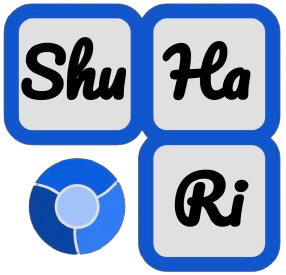 “Shuhari” (守破離) is a Japanese word that describes the three stages of learning and mastery. The three stages are:
“Shuhari” (守破離) is a Japanese word that describes the three stages of learning and mastery. The three stages are:
Shu (守 – “follow”): In this stage, the student diligently follows the teachings of a master or a specific set of rules. The focus is on learning and mastering the basics. The student learns by imitating and absorbing the knowledge and techniques passed on by the teacher.
Ha (破 – “break”): At this stage the student begins to deviate from strict adherence to the teachings. They begin to explore variations, innovations, and different approaches. The goal is to understand the principles behind the teachings and adapt them to one’s own style. It involves breaking away from a rigid structure and embracing a more creative and individualistic approach.
Ri (離 – “depart”): At this advanced stage, the student transcends the teachings and rules. They have internalized the knowledge and principles to such an extent that they are free to create and innovate. The master becomes independent, and his movements are a natural expression of his own understanding. “Ri” represents a departure from formalized learning and the ability to create one’s own path.
In essence, Shuhari represents a concept that emphasizes continuous learning, adaptation, and evolution of skills. Our ShuHaRi process applies this concept to the new product development process. Our ShuHaRi Process and System’s three stages of mastery are:
Shu(守): Our fundamental process with a phase concept originates from automotive APQP process (Advanced Product Quality Planning). Many automotive suppliers have followed this process to ensure the high quality of new products. In the past, the APQP process was followed manually using tools such as Excel, representing the ‘Shu’ stage where teams protectively adhered to established methods.
Ha (破): Progressing to the ‘Ha’ stage, our web-based system enhances and simplifies access to APQP tasks, enabling team members to explore innovative approaches and break away from manual constraints. The system also improves project data management, providing easy access to a wealth of project data for more independent and creative decision-making.
Ri (離): In the ‘Ri’ stage, with the accumulated project data within the ShuHaRi system, users can compare the results and outcomes across various teams. This comparison facilitates the creation of optimal methods/templates, and empower teams to develop their own techniques for continuous improvement.
